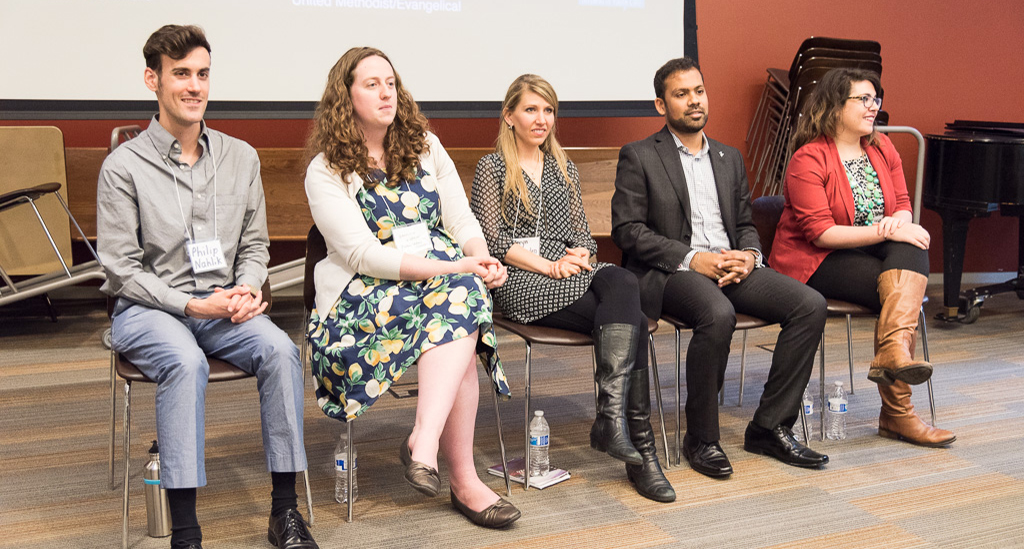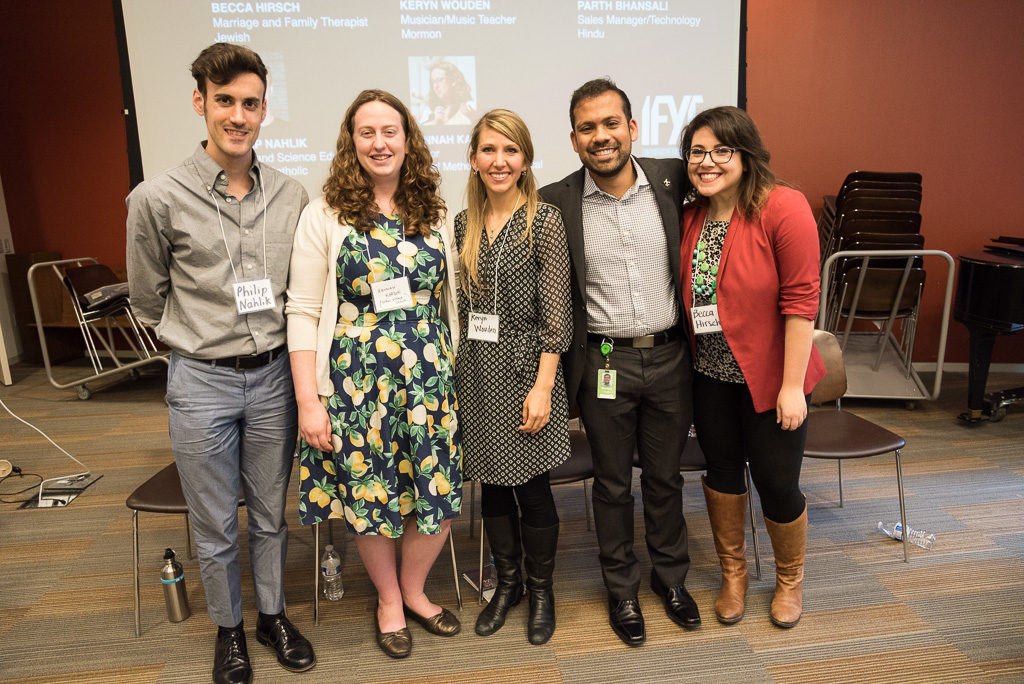 A panel of five young emerging interfaith leaders gave participants in this year’s Associated Church Press (ACP) convention a glimpse of the growing movement to build bridges of understanding. The panel followed an address by Eboo Patel, who stressed the importance of nurturing interfaith leadership.
A panel of five young emerging interfaith leaders gave participants in this year’s Associated Church Press (ACP) convention a glimpse of the growing movement to build bridges of understanding. The panel followed an address by Eboo Patel, who stressed the importance of nurturing interfaith leadership.
Building on the convention theme, “Bridges to Understanding,” the panelists encouraged ACP members not to be afraid to engage others in conversation about faith differences.
Panel moderator Andy Kirschner, director of alumni relations for Interfaith Youth Core (IFYC), introduced the panelists, all of whom are alumni of IFYC:
- Phil Nahlik (Catholic), a graduate student in environmental sciences at Loyola University
- Hannah Kardon (evangelical Protestant), pastor of Urban Village Church, in Chicago
- Keryn Wouden (Church of Jesus Christ of Latter-day Saints), a musician and music teacher
- Parth Bhansali (Hindu), a sales manager at Groupon
- Becca Hirsch (Jewish), a family therapist who focuses on interfaith and intercultural couples counseling
Nahlik said he uses his interfaith skills to talk to students about how their faith affects their views of the environment. “Go into conversations expecting there to be differences, but expecting to value them,” he said.
Kardon said she found her interfaith skills to be more helpful than almost anything she learned growing in a United Methodist congregation. “In order to accomplish almost anything in the world today, you need to build a religiously diverse coalition to do it,” she said. When engaging people of different ideologies, Kardon said she tells them, “Let’s work on the thing we agree on.”
She also urged parents not to isolate their children from other religious groups. “Your kids are not going to keep their faith if you never teach them to engage with the beliefs of other faiths,” she said.
Wouden described her close friendship with a young woman who was a member of the Christian Church (Disciples of Christ). The two were on opposite sides of a ballot initiative and both hosted rallies to support their side of the issue. “It never crossed our minds that we couldn’t be friends because our ideologies were different,” she said. “We are not the labels we give each other. We are whole people with diverse identities.” The key is “learning to overcome differences, to talk about the hard things.”

In his work in the corporate world for Groupon, Bhansali takes the initiative to get his coworkers “to leave their desks to do interfaith activity.” He urged religious communicators to counter negative stereotypes of other religions by sharing positive stories about interfaith relationships on social media.
Hirsch encouraged communicators to “break down the taboo” against talking about faith. When talking with people of other faiths—or people who disagree with you—“be respectful, listen, and model how you want to be treated,” she said.
In closing the discussion, Kirschner noted that Dr. Martin Luther King Jr. was only 26 years old when he helped organized the Montgomery bus boycott—a pivotal moment in civil rights history.
He called the panelists “pioneers” in an interfaith movement likely to be regarded as pivotal by future generations.